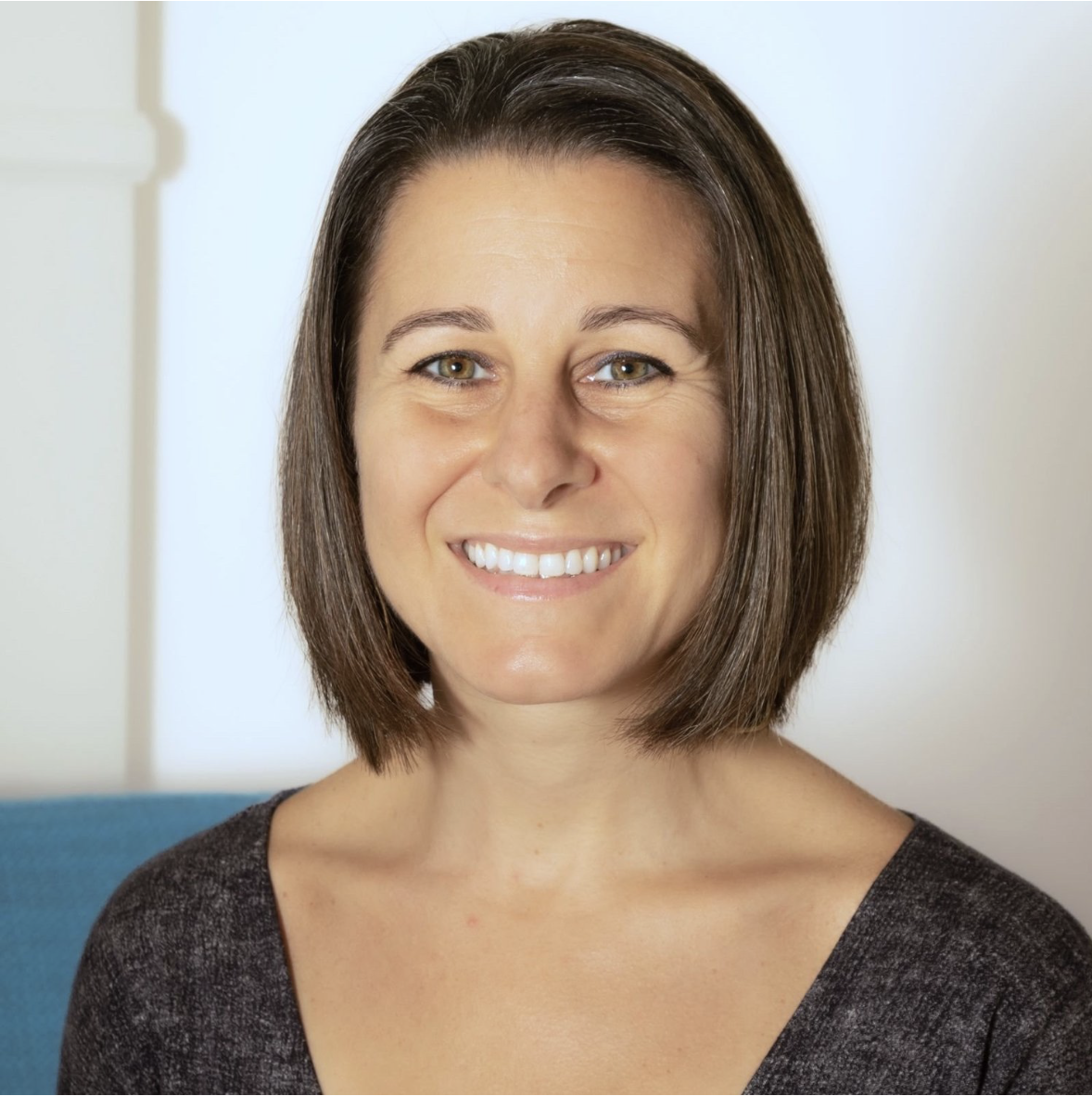Member Interview: Christine Badalamenti Smith
We are so exited to share this interview with Christine Badalamenti Smith of OGGI BE Yoga Therapy & Rewilding. Christine is a warm and empathic practitioner who supports individuals and couples. She is gentle and kind, and anyone would be lucky to have her nurturing care through their perinatal time. Christine has an office space in South Burlington; she works in person and virtually.
What services do you offer to folks during conception, pregnancy, birth, or postpartum?
I offer individual yoga therapy to support folks in all phases from their fertility journey to pregnancy and postpartum with their mental health, connection to Self and body, skills for self-regulation and stress management, life balance, and more. I offer group yoga therapy to those who are looking for these skills and experiences while in the support of a community. I offer couples yoga therapy to help partners with their self-connection and awareness as well as their communication and connection to one another.
How did you get into your line of work?
I was an environmental advocate when I developed severe anxiety. In addition to seeking the support of a talk therapist, and building a new yoga practice, I began studying yoga therapy. It began just for my personal development but I quickly discovered that I was uniquely suited to deliver this work to the world, and it was what I had to do. After a few years of study and practice my husband and I started trying to grow our family. It's been three and a half years and we are still trying. During this process, I've become a part of this community and I'm passionate about supporting them.
What do people think you do to support folks?
Some people think experiencing yoga therapy is like a yoga class. It's not. It's therapy. In fact, people don't need to be familiar with yoga or desire to do yoga. In an individual session, the kind of embodiment that each client does is unique to them and could look like swaying, lying down, or sitting and breathing. In group sessions, it will appear more like a yoga class because many bodies are moving at the same time, but the offerings, process, and permission in the embodiment are very different from a traditional yoga class. Some people think that yoga therapy is like physical therapy. Some schools teach yoga therapy with a greater focus on the physical body, but my training focuses on mental health, life change, and personal development. Some people think they will receive a prescription of yoga poses at the end of an individual session. Yes, there will be a takeaway so clients can integrate the work into their lives, but we generate that together and it often doesn't involve movement at all. An example might be to make more time for a favorite activity or call an old friend. Some people think there has to be something wrong to seek yoga therapy, but actually, this approach to mental and emotional wellness can be proactive as well as reactive and can used for self-actualization and reaching one's goals. Anyone seeking to partner with their body to move more holistically and gracefully through life can benefit.
What do you actually do to support folks?
I help people to partner with their bodies for their mental health and wellness, and a vibrant, purposeful life. We talk and we engage the body in unique ways for self-exploration and skill-building. We utilize the philosophies of yoga, Buddhism, and Ayurveda as well as neuroscience and emerging research. It is not redundant to see a talk therapist and yoga therapist at the same time because even when we are talking, the conversation is based on these fundamental principles. Clients discover their truth, and their power, engage in behavior change, and create the conditions in which they may live with greater freedom and ease. Ultimately, clients come to know themselves completely and gain autonomy over conditioning, past hurts, and the circumstances of their lives.
What is something that you feel like you are uniquely able to help people with?
Even though I have only been in this field for about six years, I've been working a lifetime to develop the skill to hold space with unconditional positive regard for others. When people are with me, they feel fully seen, and because I hold no agenda or expectations, they have complete freedom to engage in this work in a way that helps them feel safe and held and works for them. That means that my approach with each client is different and I have to be totally open and flexible to meet them where they are. I came to this work because I needed this work. I was cautiously curious and questioned everything along the way. I understand people's fears and the roadblocks that may stand between them and getting support that could change their lives. I'm incredibly patient and I only work at the pace and safety of the clients I serve.
What is the one piece of advice you find yourself telling people over and over again?
Pause and breathe. It seems like everyone is saying that right now, but that's because it is profoundly powerful, and while it's been effective and true for thousands of years, it seems many people are discovering it for the first time. And, it bears repeating because we often have to relearn lessons and practices until they become not a practice but an approach to life and who we are.
What are the top 3 questions people ask when they first start to work with you for support?
Question: Do I have to do yoga?
Answer: Only if you want.
Question: How often should I see you? The answer is,
Answer: in the beginning, it's helpful to come to sessions weekly to learn this new method of self-exploration and build sturdy neural pathways and rote behaviors that will support them when we're not together. After that, we decide together what would be best. Also, I can be flexible to meet their needs and capacity. Schedules and timing should not be a roadblock to experiencing this work and getting support.
Question: How long do people typically work with you?
Answer: It depends. Most people work with me for at least six months. Some people take a break and come back later. Some people see the benefits of continuous work because they've moved past whatever originally brought them to me and they want to continue on a personal development and self-actualization journey. I also have a program that is three months long, it requires a strong commitment from the client, and it's most often used for working on a specific goal like changing one's relationship with food for example. That program is time intensive for both my client and myself and we meet weekly for three months, we stay in touch throughout the week, and they're given practices and resource materials to foment their learning and desired change.

